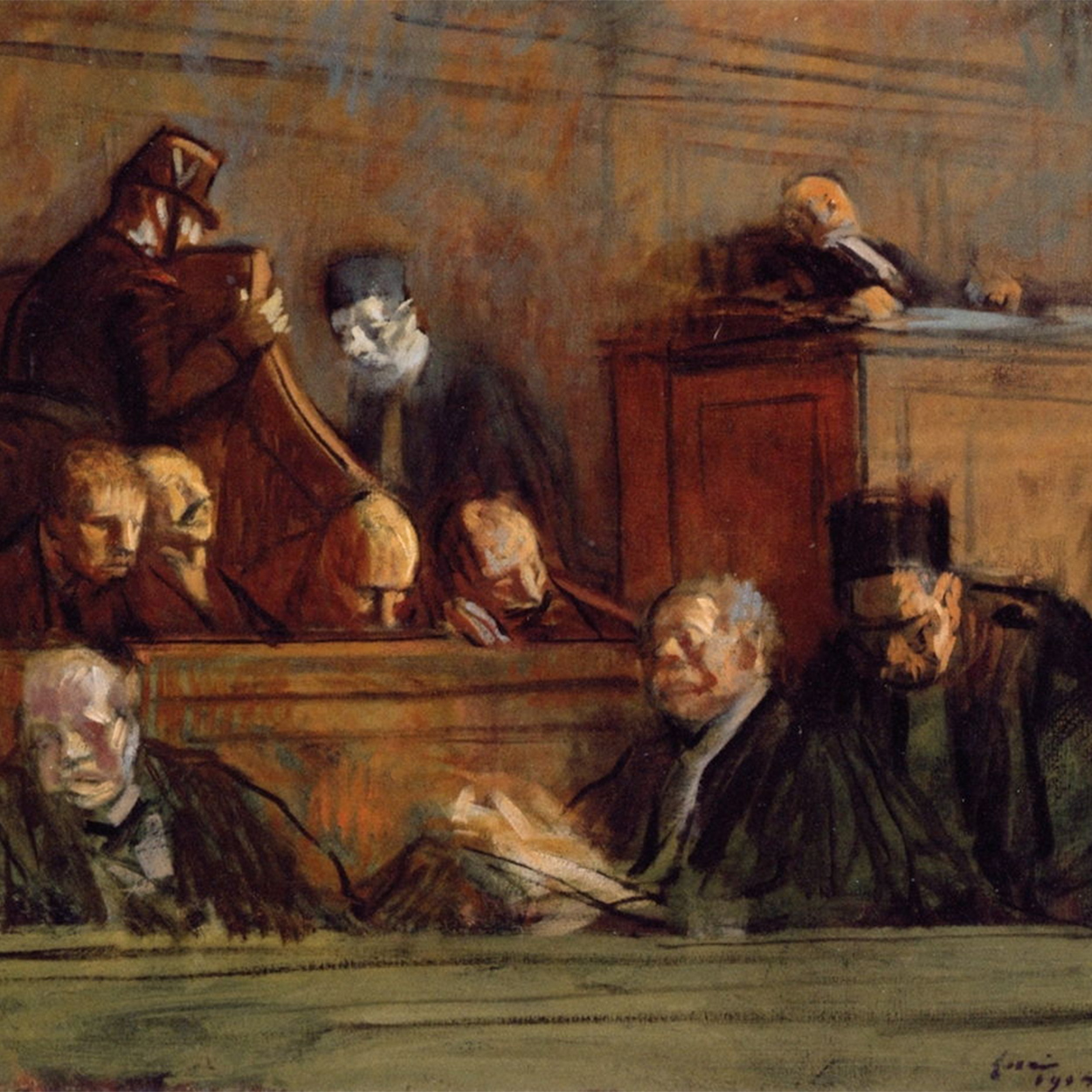In Part One of this brief meditation on joy and happiness, I briefly examined the meanings of the original Greek words for each that are typically used in scripture. I also differentiated happiness from joy in terms of the ways in which happiness is primarily rooted in circumstance, unlike joy, which is less dependent on citation and reflects a more enduring sense of peace or comfort that comes as a gift from God.
To further explore the meaning of joy as taught in scripture, we need to turn to a short passage in Philippians. Paul writes:
Rejoice in the Lord always: and again I say, Rejoice. Let your moderation be known unto all men. The Lord is at hand. Be careful for nothing: but in every thing by prayer and supplication with thanksgiving let your requests be made known unto God. And the peace of God, which passeth all understanding, shall keep your hearts and minds through Christ Jesus.
Notice that this passage begins with a (repeated) command for us to rejoice, to be joyful—literally, to be full of “comfort” and “calm delight.” Most important here, however, is the fact that Paul’s command to rejoice is immediately followed by another command, a command to be “careful for nothing.” Now, in contemporary English usages, the phrase “be careful” means to proceed with caution, and that makes Paul’s phrase sound a little bit odd to our modern ears. Is he really telling the saints in Phillipi to be heedless or incautious as they move forward in their lives, to be careful about nothing? That would be very strange advice indeed. Joy flows into the soul as fear departs.
Context for Paul’s Message
It might be worth taking a moment to consider some of the historical context of Paul’s letter to better appreciate just what he is teaching the Philippian saints. Paul was writing to his brothers and sisters in the Church from the degrading confines of a Roman prison cell. His prospects in the Roman legal system were not looking very good, and he knew it. Indeed, within a couple of years, he would be dead, another victim of the relentless Roman oppression of Christians at the time. Paul also could see that life was going to be getting increasingly difficult and dangerous for his loved ones at Philippi and throughout the Church elsewhere. The infamously ruthless persecutions of Christians under Emperor Nero were just getting underway, and the injustices began to multiply along with the body counts. Those who refused to bend the knee and admit that Nero was a god were often sentenced to death in the arena, where they served as spectacle for the bloodthirsty crowds of Rome, torn apart by ravenous beasts while they held hands and sang hymns. Even more incomprehensibly, the Emperor would soon be lathering Christians in pitch and setting them ablaze as human candles to light his garden so he might read by night while strolling about the grounds. Knowing Roman methods of torture and appreciating the power of the imperial State, Paul knew that a time of tremendous suffering and grief was in store for his faithful friends and followers. In the face of such dire circumstances, Paul was most assuredly not suggesting that the saints at Philippi just keep a positive mental attitude, put on a happy face, or even just grin and bear it. It is also unlikely that he was just implying that if only the saints exercised a bit more faith, they would get more “pep in their step” and that Mr. Bluebird would surely start singing on their shoulders, taking all their worries and trials away. Paul was many things, but a blind optimist was almost certainly not one of them.
Paul did, however, tell the saints to rejoice and that in so doing, the peace of God, “which passeth all understanding,” should keep their hearts and minds firm and steadfast amid the tribulations that were sure to come. Indeed, rejoicing only makes sense if there are painful, tragic things that have been overcome. In directing the saints in Philippi to rejoice, he was telling them they need no longer fear, not because God was going to bend the Roman world to their will and bless them with immediate delivery from hardship, but because having suffered the agonies of Gethsemane and the Cross, and having risen from the garden tomb, Christ had kept His promise that “In the world, ye shall have tribulation: but be of good cheer (i.e., tharseo—“have courage”); I have overcome the world.” God is always patiently working for the salvation of His children.
Bad Things Happen to Good People
Here, then, is a central reason why I believe that understanding this distinction between happiness and joy is so important: It brings to light one of the most troublesome areas of our lives and faith. Why is it, we sometimes ask, that good, faithful people sometimes have such difficult and grief-filled lives? How is it possible to believe in a God who is good and loving in the face of all the suffering that goes on in not only our own lives but in the far-flung tragedies of the world in places like Japan, Israel, Syria, Ukraine, Indonesia, or closer to home at an elementary school in Uvalde, Texas, at a children’s hospital in Memphis, Tennessee, or at a domestic abuse crisis center in Norwalk, Connecticut? This is the age-old problem of theodicy—the question of why a loving God permits suffering. It is a question that has occupied not only the efforts of the most famous theologians and philosophers but also the souls of ordinary men and women forced, in the most humble circumstances, to confront the possibility of faith in the face of incomprehensible tragedy.

Far too often, it seems that we assume that if our faith were strong enough, bad stuff would not happen to us. Even worse, we sometimes go to those who are suffering and have experienced great loss and (perhaps unwittingly) add terrible insult to their injury by suggesting that if they had just exercised more faith, then things would worked out differently for them, their miracles would have come if only they had prayed harder and done more. Still more tragic, all too often, even if someone else is not telling us this lie, we find ways to tell it to ourselves and deepen our misery, and, in so doing, further the soul-destroying work of the Adversary. He is calling us to see things from His perspective.
However, though we live in the midst of such things, we have never been commanded to simply “grin and bear it,” to just be happy, or to project happiness. Rather, we have been called to rejoice in the truth that is Christ and the hope and peace His loving sacrifice brings. In this world, while tragedies certainly abound, they do not constitute the ultimate reality of things.
In his epistle to the Galatians, Paul teaches that joy is one of the fruits of the Spirit—along with love, peace, longsuffering, gentleness, goodness, faith, meekness, and temperance—and, as such, joy flows naturally as we commit to a genuinely spiritual life by engaging in a real relationship with our Savior. While it is true that we can experience happiness without embracing a real relationship with Christ, the one thing we cannot have unless we do is joy. After all, if it were not possible to find some measure of happiness, pleasure, or enjoyment in sin and selfishness, then they would hold no power to tempt us in the first place.
Our Joy Can Be Full
Joy, on the other hand, flows “without compulsory means” to us as we give ourselves over to a loving, compassionate, and merciful God who keeps His promises. When our desires become His desires, when we desire only to be an instrument in the hands of God, for Him to use as He sees fit in His work to bless the lives of all of His children, then the serenity, assurance, and peace of joy follow. Joy settles into our soul when we, as King Benjamin taught, are “willing to submit to all things which the Lord seeth fit to inflict,” trusting that He knows us best and knows what is best for all His children. Such willingness is at the heart of the covenant Alma invited his followers to enter into. He asked them what they had against being baptized if they were:
. . . willing to mourn with those that mourn; yea, and comfort those that stand in need of comfort, and to stand as witnesses of God at all times and in all things, and in all places that ye may be in, even until death . . .
While it is hard to believe that Jesus was happy in the midst of His sufferings in the Garden of Gethsemane, it is not so difficult to accept that He was full of joy—joy because He knew He was doing the work His Father had given Him and that that work would usher hope into a world that sees far too much of senseless tragedy and pain, a glorious work that would bring to pass the immortality and eternal life of man. Joy comes from trusting that God is good and loving.
This promise of peace is, in the final analysis, what joy is really all about. In joy, we have no need to be afraid—not because God will not let bad things happen if we just pray a lot and ask with sincerity.
No, do not be afraid because the bad things that happen will be made to serve the purposes of God if you will just give them over into God’s loving, knowing hands. Joy comes from trusting that God is good and loving and is always there with you, seeking to bless and comfort you, even in your utmost extremity. It is who He is; it is what He does.
Pressing Forward
In closing, perhaps the questions we should each be asking ourselves are: What is keeping me from joy right now? What are the things in my life that I am anxious and fearful about? What am I still trying to find some way to control, to master, to hold onto for myself? What worries are holding me firmly in their grip and keeping me from fully leaving the comfortable but bland confines of Winter Quarters for the invigorating spiritual highlands of the promised land to the west? How much of my life am I honestly willing to give over to God for His use? How far am I really willing to trust Him with my life and soul? How close am I to saying with Job: “Though he slay me, yet will I trust him.” With every act of faith, with every instance of freely given trust in God and His promises, we become more “at-one” with Christ, more secure and at peace, our fears fall away, and our confidence begins to “wax strong in the presence of God.”
As we turn away from concern for self and circumstance, away from happiness and comfort as a substitute for an honest relationship with Christ, joy enters our souls, and with it, the “perfect brightness of hope” spoken of by Nephi as he encouraged us to “press forward with a steadfastness in Christ . . . feasting upon the word of Christ and endur[ing] to the end.” This is a joy that no one can ever take from us. Living joyfully is both one of the most pressing challenges of faith and one of its greatest possibilities. It is a supernal gift for which we must be willing to give up everything but Christ in order to receive.

















